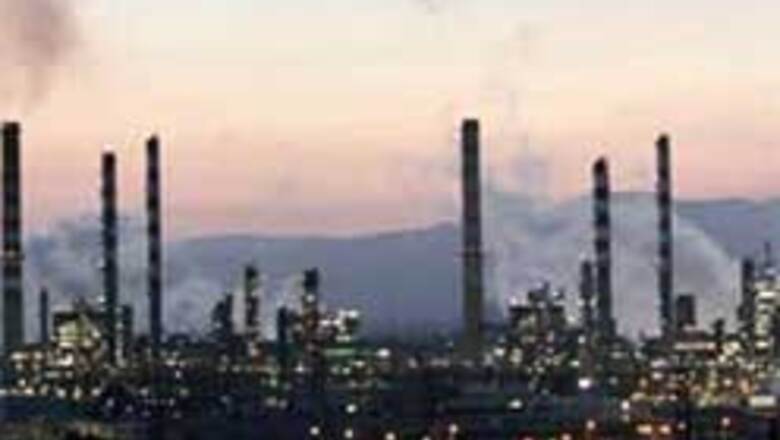
views
New Delhi: India could see growth this year of roughly 7 per cent and then resume the faster expansion of recent years, provided it makes sweeping reforms including removal of fuel subsidies and accelerates infrastructure development, a key Government report said.
The economic survey prepared by the Finance Ministry, released ahead of Monday's Budget announcement for the fiscal year ending in March 2010, said inflation is no longer a worry and called for an urgent return to the targeted fiscal deficit of 3 per cent.
India's fiscal deficit ballooned to 6.2 per cent in 2008-09 as the government unleashed stimulus spending to insulate the economy against the global downturn.
The Finance Ministry's snapshot of the economy was largely upbeat and said the outlook for a resumption in the medium term to India's robust rate of growth before the global economic downturn was achievable if the government embraces reforms.
"India should be back on the new trend growth path of 8.5 to 9 per cent per annum provided the critical policy and institutional bottlenecks are removed," the report said.
The Indian economy grew at 9 per cent or more in the three years that ended in March 2008. "It is therefore imperative that the government revisit the agenda for pending economic reforms in the first instance with a view to renew the growth momentum," the report said.
While earlier reform calls from the Finance Ministry were blocked due to political opposition amid the previous government's power-sharing agreement with the left, prospects for liberalisation of the economy are brighter after the Congress party won a decisive election result in May.
The Finance Ministry's report called for a selldown in stakes of state-run companies to generate Rs 250 billion ($5.23 billion) annually, reform of fertiliser and food subsidies, and an auction of third-generation mobile phone spectrum that it said should be freely tradeable.
It also called for "greater urgency" to removing hurdles to investment in infrastructure by government and the private sector. While the central bank has slashed interest rates by 425 basis points since October to revive demand, real rates remain high and continue to act as a brake on loan growth.
"The expectation that there could be further cuts in policy rates and in lending rates may have resulted in investment decisions being deferred," the report said.
It also called for implementation of a goods and services tax (GST) by April 2010 to maximise revenues and simplify the tax regime. The report said government should take advantage of the recent low price in oil costs to free petrol and diesel prices.
Chief Economic Advisor Arvind Virmani says, "I feel more confident now than I did, let's say, in March. We will have the mean focus of 7 per cent. There are so many ifs and buts now in that I have put a .75 per cent plus-minus for it. What it says is that normally one can never get perfect in forecast. So normally I put a range of 5 per cent plus minus. I have expanded to .75 per cent because the uncertainty from the global situation is much higher. But that uncertainty is more or less now captured in the .75 per cent, which is that even if things are much worse than the mean and the global context, our growth rate should not be less than 6.25 per cent which is 7 minus .75 per cent."




















Comments
0 comment